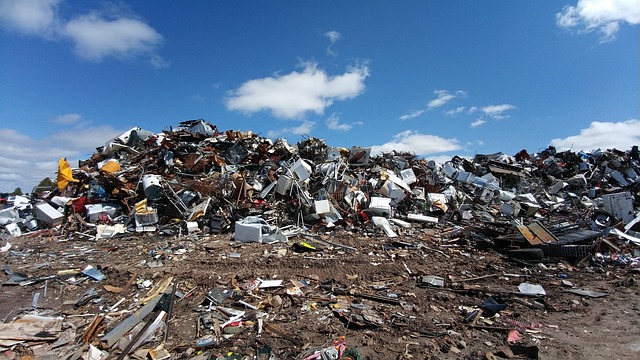EN 16201 Phenol Index in Industrial Waste
The EN 16201 standard provides a method to determine the phenol index, which is critical for assessing the biodegradable fraction of organic matter present in industrial waste. This test helps in understanding how easily different components within the waste can be broken down by microorganisms under controlled conditions.
The phenol index quantifies the potential biodegradability of a sample by measuring its ability to decolorize a solution containing phenol, an aromatic compound that acts as a substrate for microbial activity. A higher phenol index indicates greater biodegradability and thus less environmentally harmful waste. This metric is particularly important in sectors like chemical manufacturing, pharmaceuticals, and electronics where industrial waste management plays a crucial role.
The test protocol involves several steps:
- Preparation of the sample: The industrial waste must be properly ground to ensure uniformity and homogeneity.
- Solution preparation: A phenol solution is prepared according to standardized concentration levels.
- Dilution: The sample is diluted with distilled water to achieve a specific range of concentrations for testing.
- Incubation: The mixture is incubated under controlled conditions (temperature and time) to simulate biodegradation processes.
- Decolorization measurement: Changes in color are quantified using spectrophotometric analysis, providing the phenol index value.
The EN 16201 standard ensures accurate and consistent results across different laboratories. Compliance with this standard is essential for industries aiming to comply with environmental regulations and reduce their ecological footprint by managing waste more efficiently.
Understanding the biodegradability of industrial waste through phenol index testing is vital for several reasons:
- Environmental Protection: Helps in reducing landfill impacts by recycling or composting more easily degradable materials.
- Economic Benefits: Allows companies to optimize waste management strategies, potentially lowering operational costs related to disposal and treatment.
- Regulatory Compliance: Ensures adherence to EU directives on waste management and biodegradability.
Real-world applications of EN 16201 include:
- Evaluating the effectiveness of waste reduction programs in chemical plants.
- Determining appropriate disposal methods for pharmaceutical manufacturing residues.
- Assisting in the development of biodegradable materials by assessing their environmental impact during decommissioning.
The phenol index test is a key component in sustainable waste management practices, providing essential data to improve industrial processes and reduce ecological harm. By accurately measuring the biodegradability of organic matter within industrial waste streams, this test aids in making informed decisions that can lead to significant environmental improvements.
Industry Applications
The application of EN 16201 extends across various sectors where industrial waste management is paramount:
- Chemical Manufacturing: Ensures the safe disposal of organic solvents and other hazardous chemicals.
- Pharmaceuticals: Assists in evaluating residues from drug manufacturing processes for proper recycling or incineration.
- Electronics: Helps in managing by-products from semiconductor production that require environmentally friendly disposal methods.
The test results are integral to these industries as they help in making informed decisions about waste treatment and recycling. For example, in the chemical sector, understanding the phenol index allows for better process optimization, reducing the risk of contamination during waste handling.
Eurolab Advantages
At Eurolab, we offer comprehensive testing services that are tailored to meet your unique needs. Our experts provide:
- Accurate Testing: Leveraging advanced instrumentation and methodologies for precise phenol index measurements.
- Compliance Expertise: Ensuring all tests comply with the latest EN standards, including EN 16201.
- Consultative Approach: Offering insights that go beyond the test results to help you optimize waste management practices.
We pride ourselves on providing reliable and actionable data that contribute to your sustainability goals. Partner with us for cutting-edge testing solutions that align with international standards.
Customer Impact and Satisfaction
- Enhanced Compliance: Our services help customers stay compliant with EU directives on waste management, reducing the risk of penalties.
- Improved Efficiency: By providing accurate phenol index data, we enable customers to optimize their waste handling processes and reduce costs.
- Increased Sustainability: Through our testing, customers can make informed decisions that promote a circular economy and minimize environmental impact.
Our commitment to excellence has led to high customer satisfaction. We have successfully supported numerous industries in achieving their sustainability goals through reliable biodegradability assessments.





